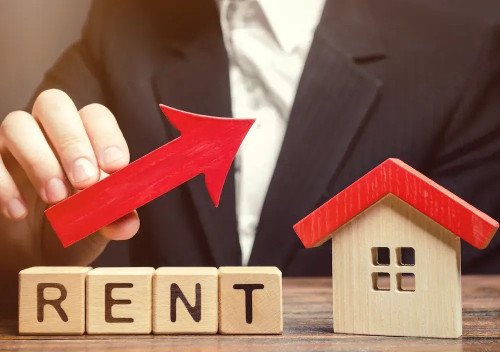Why Everyone’s Talking About Dubai’s Rental Market
Dubai is one of the world’s most dynamic cities—a fast-paced hub of luxury, opportunity, and cultural diversity. For many expats, it’s a dream destination filled with sunshine, skyscrapers, and promising career prospects. But before you pack your bags and book that flight, one pressing question often stands between dream and reality: How much will it actually cost to live here, especially when it comes to rent?
Whether you’re moving for work, lifestyle, or a fresh start, understanding the rental landscape in Dubai can make or break your experience. Thankfully, the city offers something for every budget—if you know where and how to look.
The Wide Range of Rental Prices

There’s no one-size-fits-all when it comes to rent in Dubai. From sleek high-rise apartments in Downtown to spacious villas in family-friendly suburbs, the prices vary drastically depending on location, property type, amenities, and proximity to major landmarks or metro lines.
If you’re single and planning to share an apartment, you might find a decent room for rent in shared accommodation anywhere between AED 2,500 to AED 5,000 per month. That’s a great way to save money and still enjoy urban life.

However, if you’re looking for a one-bedroom apartment just for yourself, expect to pay between AED 5,000 to AED 10,000 monthly in areas like Al Barsha, JLT, or Business Bay. Want that iconic Burj Khalifa view? In Downtown Dubai or the Marina, that one-bedroom could cost you up to AED 12,000 to AED 15,000 per month—or even more depending on the building’s prestige and facilities.

Families often go for two- or three-bedroom apartments or villas. A two-bedroom unit in mid-range neighborhoods might start around AED 8,000 to AED 12,000 per month, while larger villas in suburbs like Mirdif or Arabian Ranches can range from AED 15,000 to AED 30,000 monthly. Some elite communities go far beyond that range.
Breaking It Down by Area
Your rent will largely depend on where in Dubai you choose to live. Here’s a general idea of how different neighborhoods stack up:
- Luxury Central Living (High-End Budget): Areas like Downtown Dubai, Dubai Marina, and Palm Jumeirah are premium zones. These are ideal if you want iconic views, vibrant nightlife, and state-of-the-art facilities. Rents are understandably higher here.
- Mid-Range Urban Comfort: Neighborhoods like Jumeirah Lake Towers (JLT), Business Bay, and Al Barsha offer a mix of comfort and affordability. These places are well-connected by metro, have shopping malls nearby, and appeal to professionals and couples.
- Budget-Friendly Suburbs: If you’re seeking a quieter lifestyle or want more space for your money, consider areas like Discovery Gardens, Dubai Silicon Oasis, or International City. They offer decent options at more affordable prices, especially for families or remote workers.
- Emerging Areas (Value for Money): Communities like Dubai South, Town Square, and Jumeirah Village Circle (JVC) are attracting more residents with their newer buildings, lower rents, and growing infrastructure.
Furnished vs. Unfurnished Homes
Dubai offers both furnished and unfurnished properties. A furnished apartment comes ready to move in—with everything from beds and sofas to washing machines and kitchen appliances. Perfect for those who want to skip the hassle of shopping for household items.
However, furnished units generally cost a bit more. You can expect to pay an extra AED 500 to AED 1,500 monthly depending on the apartment size and furnishings. Unfurnished homes are slightly more affordable, but you’ll need to budget for furniture and appliances upfront.

Hidden Costs You Shouldn’t Overlook
Your rent isn’t the only thing you’ll be paying each month. Dubai’s rental market comes with some extra costs that new tenants often forget to factor in:
- Security Deposit: Usually one month’s rent, refundable when you move out, provided no damage is done.
- Agency Fee: If you go through a real estate agent, be ready to pay 5% of your annual rent as commission.
- DEWA and Cooling Bills: DEWA (Dubai Electricity and Water Authority) bills usually range between AED 300 to AED 800 monthly depending on usage and unit size. In many buildings, cooling is handled by district cooling companies like Empower, which is billed separately and can range between AED 500 to AED 1,000 monthly.
- Ejari Registration: Mandatory registration of your tenancy contract with Dubai Land Department, costing around AED 200 to AED 250.
When you put it all together, the rent you see in listings may not be the complete picture. Always calculate the full monthly and initial moving costs before signing the dotted line.
Flexible Payment Plans Are the New Norm
In the past, it was common for landlords in Dubai to ask for rent in one or two cheques for the entire year. This lump sum model made it hard for some people to manage.
Thankfully, the trend has shifted. Many landlords now accept 4 to 12 cheques—meaning monthly, quarterly, or bi-annual payments. Some even offer short-term leases with monthly payment options, perfect for freelancers, remote workers, or people on project-based jobs.
If you’re working with a tight budget or just starting out in Dubai, ask your agent or landlord about flexible payment terms. It’s become much more negotiable than it used to be.
How to Find the Best Rental Deal
The key to scoring the best deal is to research, compare, and act fast. Rental prices can fluctuate depending on the season, market demand, and upcoming events. Here’s what can help:
- Start early and give yourself time to explore various neighborhoods and listings.
- Visit multiple properties to understand what’s available in your price range.
- Negotiate, especially if you’re offering more cheques or willing to commit to a longer lease.
- Use local apps and websites, but always verify listings to avoid scams.
- Talk to people already living in Dubai—they might connect you with off-market opportunities or trusted agents.

Living with Roommates: The Smart Budget Choice
If you’re young, single, or just trying to save money, sharing a flat is extremely common in Dubai. Many expats start this way to get settled before moving into a place of their own.
Rooms in shared apartments range from AED 2,500 to AED 4,500 monthly depending on location and size. Some even include utilities, Wi-Fi, and cleaning services. Plus, you’ll get a chance to meet people from all over the world.
Just be sure to check if the building legally allows shared accommodations, especially in family zones where restrictions can apply.
A City That Grows With You
What’s amazing about Dubai is how it adapts to your stage of life. Whether you’re just starting your career or moving your entire family, you can always find something that fits both your lifestyle and your wallet.
Start small in a shared flat, then move to a studio or one-bedroom as you settle in. Once you’re ready for more space, you can upgrade to a bigger apartment or villa in a quieter community.
Dubai’s rental market is built to scale with you—and that’s part of what makes living here such a unique and empowering experience.

Final Thoughts: Plan Smart and Stay Open-Minded
The cost of rent in Dubai depends on what kind of lifestyle you’re aiming for—but there are affordable options across the board if you plan wisely. From lively city centers to peaceful family suburbs, the city gives you plenty of freedom to choose what suits you best.
Don’t rush the process. Take the time to explore, ask questions, and understand all the costs involved. And remember: Rent might be one of the biggest expenses in Dubai, but it’s also your gateway to an exciting new life in a city filled with possibilities.
By staying informed and flexible, you’ll find a home that feels just right—not just for your budget, but for your dreams too.
Do follow UAE Stories on Instagram
Abu Dhabi Equestrian Club Accredited as World’s First Hybrid Show Jumping Arena















